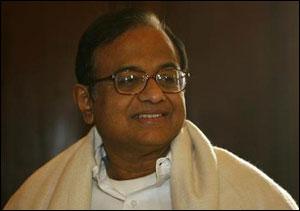Finance Minister P Chidambaram said the government’s fiscal deficit this financial year would be restricted to 5.2 per cent of the gross domestic product. However, in reducing the deficit, a lot of Plan expenditure was cut, which hurt growth. In an interview with DD News, Chidambaram said there wasn’t much room for a cut in non-Plan expenditure. He also suggested reducing interest rates would help stimulate growth. Excerpts:
 On current account deficit (CAD)
On current account deficit (CAD)
In the long term, the only way you can address CAD is through exports. So, we have given a major thrust on manufacturing. If anyone invests about0100 crore, he can take an investment allowance of 15 per cent. That should give a boost to manufacturing. As this picks up and manufactured goods are exported in greater volumes, CAD would shrink.
Similarly, on software side, based on the Rangachary report, we have done something. By the end of the month, we will do some more. Services exports should go up. In the long term, what we have done for exports and we will do - when the Foreign Trade Policy is announced - should bridge the gap.
On safe investment options
If you are looking only for returns when gold prices are rising very rapidly, this is the only place for people to invest. But this is not good for the country. If you want safe investments, there are a number of instruments. The public provident fund gives handsome and safe returns. There are government bonds that give eight per cent returns. There are solid companies that give as much as nine per cent returns. It is not in the nation’s interest to demand so much gold.
On expenditure
Spending too much is bad, but not spending enough is bad, too. Government expenditure also boosts aggregate demand, which is necessary to stimulate growth. I have set the Plan expenditure target at Rs 555,322 crore (Rs 5,553.22 billion). Last year, the BE was Rs 521,000 crore (Rs 5,210 billion). The increase is necessary and perfectly justified. In the second year of the 12th Plan, we cannot have a BE lower than last year’s. On the non-Plan side, there is nothing much anyone can do.
We have to pay for pensions, defence, paramilitary forces and interest rates. These are fixed and there is no room for manipulation. So, all the finance minister can do is look at the non-Plan envelope and say well, that’s costing us Rs 11 lakh crore; let me go find Rs 11 lakh crore. We could not have controlled expenditure anymore.
On capital receipts and disinvestment
I have lined up companies that are candidates for disinvestment. We have spoken to the managements and the ministries concerned and confirmed the companies as candidates. All other things being equal, markets have to be friendly. The candidates we have lined up will fetch us Rs 40,000 crore (Rs 400 billion).
The remaining Rs 14,000 crore (Rs 140 billion) would come from the government’s residual stake in non-government companies. This includes the SUUTI (Specified Undertaking of the Unit Trust of India) companies. Actually, if we sell all of that, we will get much more. But conservatively, we have said only some of it would be sold.
On cutting expenditure
If a ministry or a department does not spend 75 per cent of its budget by December 31, it cannot spend more than 25 per cent in the last quarter. In the last month, you cannot spend more than 10 per cent. We don’t want the government’s money parked in the hands of a vendor, a contractor or a supplier. These are old rules; I didn’t make these. Earlier, perhaps the rules were not enforced strictly. There are some murmurs of protest. When I explain to them, most ministers understand.
On RBI action to kick-start growth
I called the (RBI) governor on the eve of the Budget and shared the numbers with him. The next monetary policy review would take place in March or April. The governor relies heavily on the monetary policy advisory committee. I am sure they will take note of all that has happened and take the right decision. Though the burden of stimulating growth falls more on the government and less on the central bank, the central bank must also play its role.
On legislative reforms
I have consulted two leaders of the Opposition on the insurance Bill and the pension Bill. I have spoken to the chairman of the standing committee on finance on the Bills and they have promised to come back to me. We may have another meeting early next week. We will find common ground through which we can pass the insurance Bill, and after that the pension Bill, in this session.







 © 2025
© 2025